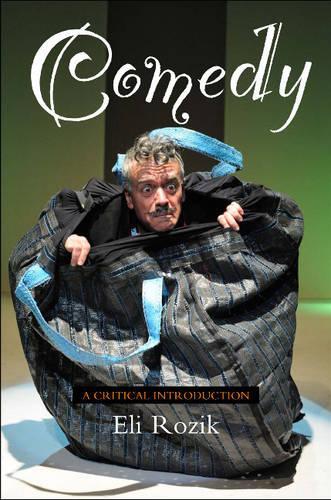Overview
Herewith an original approach to the study of comedy. While assimilating theoretical insights from Aristotle to the present day, it contests, inter alia, the theory of comedy's ritual origin; challenges the age-old and continuing attempts to determine the structure of action that characterises comedy; and suggests instead that structures of action are shared by all genres, and that it is the specific mood that accounts for their differences. Mood is a prism through which a playwright wishes the spectator to perceive a fictional world. Comedy is characterised by its light-hearted mood, which generates a specific kind of laughter. If mood determines the genre of a fictional world, in contrast to current theory, comedy, satiric drama and grotesque drama are different genres promoting different moods and aiming at different effects. Each genre should thus be read and experienced according to its inherent rules and not in terms of a theory that lumps these genres together. The book discusses the pivotal role of commedia dell'arte in both reflecting comedy's classical tradition and influencing subsequent developments, especially in comedy's style of acting; it explores the relations between comedy and carnival and between comedy and joke-telling; probes the view that comedy is characterised by a unique vision; and examines comedy in different media -- such as cinema, comics, puppet theatre, radio drama and TV drama. Eli Rozik questions the traditional semiotic view that all meaning is in the text, and suggests that, in generating comedic meaning, the spectator's contribution/reaction is no less vital than that of the text itself. Major contributions to a general theory of comedy, and to a sound methodology for the analysis of comedies, are presented, and ample reference to comedies and/or pertinent analyses of such comedies, written over the course of 2,500 years of theatre recorded history, is provided to enable readers to grasp ideas in their original terminology and logic. Each presentation is accompanied by critical comments which attempt both to introduce the problems involved and suggest possible solutions.
Full Product Details
Author: Eli Rozik
Publisher: Liverpool University Press
Imprint: Liverpool University Press
Dimensions:
Width: 22.90cm
, Height: 1.50cm
, Length: 15.20cm
Weight: 0.324kg
ISBN: 9781845194789
ISBN 10: 1845194780
Pages: 252
Publication Date: 24 August 2011
Audience:
College/higher education
,
Undergraduate
,
Postgraduate, Research & Scholarly
Format: Paperback
Publisher's Status: Out of Print
Availability: Awaiting stock

Reviews
Rozik offers a complex critical introduction to comedy in 14 chapters. He argues that comedy is a function of mood rather than of genre, structure, or other elements, and he employs this conceit to study comic structure, character, range, and the relationships between comedy and carnival, joke telling, tangential genres, and different media. He summarizes many of the major theories of comedy, laughter, and humor and offers solid critiques of why these theories are incomplete or inadequate. Choice
""Rozik offers a complex critical introduction to comedy in 14 chapters. He argues that comedy is a function of 'mood' rather than of genre, structure, or other elements, and he employs this conceit to study comic structure, character, range, and the relationships between comedy and carnival, joke telling, 'tangential genres, ' and different media. He summarizes many of the major theories of comedy, laughter, and humor and offers solid critiques of why these theories are incomplete or inadequate."" --Choice
Rozik offers a complex critical introduction to comedy in 14 chapters. He argues that comedy is a function of 'mood' rather than of genre, structure, or other elements, and he employs this conceit to study comic structure, character, range, and the relationships between comedy and carnival, joke telling, 'tangential genres, ' and different media. He summarizes many of the major theories of comedy, laughter, and humor and offers solid critiques of why these theories are incomplete or inadequate. -- Choice
Rozik offers a complex critical introduction to comedy in 14 chapters. He argues that comedy is a function of mood rather than of genre, structure, or other elements, and he employs this conceit to study comic structure, character, range, and the relationships between comedy and carnival, joke telling, tangential genres, and different media. He summarizes many of the major theories of comedy, laughter, and humor and offers solid critiques of why these theories are incomplete or inadequate. Choice Rozik offers a complex critical introduction to comedy in 14 chapters. He argues that comedy is a function of 'mood' rather than of genre, structure, or other elements, and he employs this conceit to study comic structure, character, range, and the relationships between comedy and carnival, joke telling, 'tangential genres, ' and different media. He summarizes many of the major theories of comedy, laughter, and humor and offers solid critiques of why these theories are incomplete or inadequate. --Choice
Author Information
Eli Rozik is Ph.D. and professor emeritus of theatre studies. He was twice head of the Department of Theatre Studies and Dean of the Faculty of the Arts at Tel Aviv University. He specializes in theatre theory, particularly in non-verbal communication in performance analysis; and has published numerous articles in international leading journals in Europe and the US. His books include The Language of Theatre; The Roots of Theatre Rethinking Ritual and Other Theories of Origin; Metaphoric Thinking; Generating Theatre Meaning; Fictional Thinking; Comedy: A Critical Introduction; Theatre Sciences: A Plea for a Multidisciplinary Approach to Theatre Studies; and Future Theatre Research.



